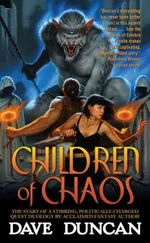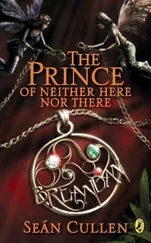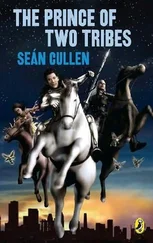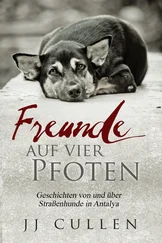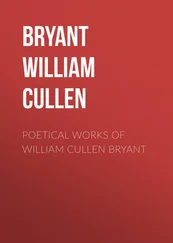He read the Old Testament story of Absalom, beloved son of King David. Absalom skillfully ingratiated himself to his father, the court, and all the kingdom but secretly plotted to seize the throne. Eventually, he thrust Israel into civil war. He appeared poised to vanquish his father, but David’s generals prevailed. The king was informed first of the triumph, then of his son’s death. “David’s grief made the victory like a defeat, and the people stole silently into the city,” Marxhausen read from 2 Samuel. David wept and cried out, “O my son Absalom, my son, my son Absalom! Would God I had died for thee, O Absalom, my son.”
____
The Klebolds were afraid to bury Dylan. His grave would be defaced. It would become an anti-shrine. They cremated his body and kept the ashes in the house.
Marxhausen assumed the media would get wind of the service. He asked one of the Klebold attorneys how to handle the inquiries. The attorney said, “Just tell them what you’ve seen here tonight.”
So he did. He told the New York Times, which featured the account on the front page. Tom and Sue were racked by grief, guilt, and utter confusion, he said: “They lost their son, but their son was also a killer.” He told the story lovingly. He described Tom and Sue as “the loneliest people on the planet.”
Don Marxhausen made some of his parish exceptionally proud. That was their pastor—a man who could find compassion in his heart for anyone. A man capable of consoling the couple who had unwittingly produced a monster. That’s why they had packed the pews to hear him every Sunday.
Some of his parish, and much of the community, was appalled. Lonely? The Klebolds were lonely? Several of the victims were still awaiting burial. Survivors still faced surgery. It would be months before some would walk again, or talk again, or discover they never would. Some people had trouble rousing sympathy for the Klebolds. Their loneliness was not an especially popular concern.
____
Wayne and Kathy Harris presumably held some ceremony for Eric. But they have never once spoken to the press. Word never leaked.
25. Threesome

No one remembers for sure how Eric and Dylan met. Eric arrived at Ken Caryl Middle School in seventh grade. Dylan was already attending. The two boys met there at some point but didn’t connect right away.
They both continued on to Columbine High. Brooks Brown reentered the school district there. His friendship with Dylan had fallen off after his parents moved him into private schools years earlier. But he returned to public school his freshman year and met Eric on the bus. Pretty soon all three were tight.
They played video games for hours. Sometimes they played in person, but they also stayed up late competing online. They went to Columbine Rebel football games together freshman year. Eric was practically a celebrity because his brother was a starter on the varsity team.
Eric, Brooks, and Dylan were three aspiring intellectuals. They took an interest in classical philosophers and Renaissance literature. All three boys were shy at that point, but Eric began breaking through his shell. It started with occasional rumblings. Just two months into high school, he asked a classmate to Homecoming. She remembered him as nervous and quiet, largely forgettable, until he faked his suicide a few days after the dance.
“He had his friend take me over to his house,” she said later. “When I went there, he was lying with his head on a rock, and there was fake blood around him, and he was acting like he was dead.” It wasn’t an original stunt—probably ripped off from the 1970s classic movie Harold and Maude . But it weirded her out. She refused to date him again.
____
First semester freshman year, Eric turned in an “I Am” poem. His selfportrait informed the reader five times in eighteen lines how nice he was. “I am a nice guy who hates when people open their pop can just a little,” the poem began. Eric ended each stanza with that same line. He described himself flying above all the rest of us, bragged about his straight A’s, and demonstrated his emotional depth: “I cry when I see or hear a dog die.”
He kept much of the work he produced in high school. Apparently, he was proud of it. “I dream that I am the last person on earth,” he wrote in “I Am.”
Eric was always a dreamer, but he liked them ugly: bleak and morose, yet boring as hell. He saw beauty in the void. Eric dreamed of a world where nothing ever happened. A world where the rest of us had been removed.
Eric shared his dreams in Internet chat rooms. He described them vividly to online chicks. In one, he was suspended inside a small dank room, like the interior hull of a ship. Futuristic yet decaying old computer screens lined the walls, covered with dust and mold and vines. The moon provided the only light, trickling dimly in through the portals, shadows creeping all around. A vast sea rose and fell monotonously. Nothing happened. Eric was overjoyed.
He rarely encountered humans in his creations—just the occasional combatant to extinguish or a disembodied voice to drop an ironic bon mot. Dreamland Eric had snuffed us out. He invented a world of precise textures, vivid hues, and absolutely no payoff for himself. When he did linger on the destination, it was to revel in the banality of the gloom. He described one of his dreamworlds to a girl in a chat room.
“wow kind of gloomy,” she responded.
“yeah. but its still nice. no people at all. kind of like, everyone is dead and has been for centuries.”
Happiness for Eric was eliminating the likes of us.
The girl said she could go for it, but only with some people. Eric said he’d only want a couple, and that led him to the burning question he loved to pose online:
With only a few people left, would she repopulate or choose extinction?
Probably extinction, she said.
Good answer. That’s what he was going for. That was the point of the entire conversation: “mmm,” he said. “i just wish I could actually DO this instead of just DREAM about it.”
Extinction fantasies cropped up regularly and would obsess Eric in his final years. But in his online chats, there was never a sense of him intending to do the deed. He had bold dreams for the world, but more modest ideas about himself. And he was pretty convinced that we would all take care of destroying the planet without his help anyway.
____
Zack Heckler had one class with Dylan freshman year—that was all it took. Finally, somebody understood him. Brooks and Eric were fun to hang with, but they never really got Dylan. Not the way Kibbie did. Zack did not care for that nickname, but it stuck. He was an insatiable snacker, so the kids had branded him “Kibble.” Great. Nicknames could be a bitch—almost impossible to shake a wussy one. So Zack was smart about it. He quit fighting the tag and adapted it. Kibble, KiBBz, Lord Kibbz—the last one wasn’t bad at all.
Zack and Dylan’s teacher gave them a lot of free study time. Eric would wander from the adjoining room. At first he came around to chat with Dylan, but pretty soon all three were cutting up. They played Doom, bowled, did sleepovers, went to ball games and drag races at Bandimere Speedway. They made fun of dumb kids and ignorant adults. Computer illiterates were the worst, especially when some fool put them in front of a class. The boys watched a ton of movies: lots of action and horror and science fantasy. They cruised the mall to pick up chicks. Eric did the talking. Zack and Dylan hung back and followed his lead.
Читать дальше


